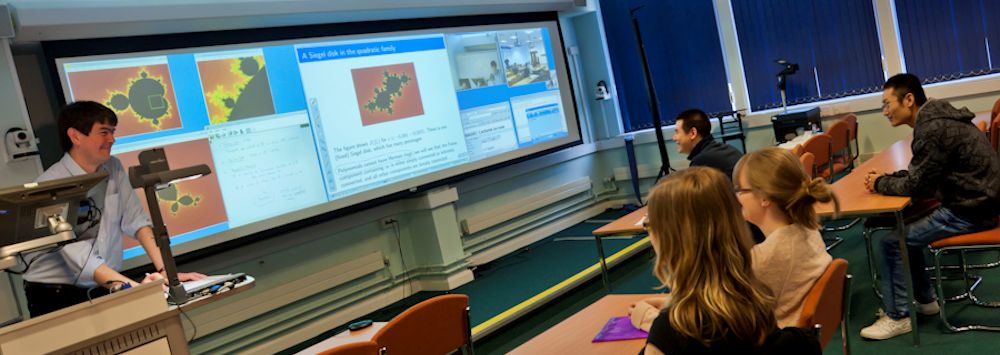
Wednesday 21st February, 1pm - Marcel Rodekamp (Forschungszentrum Jülich)
Tackling the Sign Problem of Strongly Correlated
Understanding the behavior of strongly correlated electrons is vital in various fields, from condensed matter physics to materials science. However, the numerical sign problem often hinders effective statistical simulation of such systems. In this presentation, we describe innovative techniques developed to mitigate the sign problem in systems described by the Hubbard model. Our discussion delves into the current state of these methods and their applicability. Additionally, we present preliminary results for the single-particle spectrum of Perylene, emphasizing the critical role of these techniques in studying doping effects.
Wednesday 28th, February 1pm - Arunima Bhattacharya (IFIC Valencia)
Tbc
Wednesday 6th March, 1pm - Giuseppe De Laurentis (University of Edinburgh)
Non-Planar Two-Loop Amplitudes for Five-Parton Scattering
I present the recent calculation of the two-loop amplitudes required to obtain next-to-next-to-leading order predictions for three-jet production at the Large Hadron Collider. This calculation is performed in full colour, that is including contributions from non-planar Feynman diagrams. I review the method of numerical generalized unitarity and the integrand decomposition technique employed to generate finite-field samples of the amplitude. I will then focus on the analytic reconstruction of the coefficient functions from said numerical samples. A novel algorithm, based on the correlation of codimension-one residues, helps tame the complexity of the calculation. I touch upon various interdisciplinary aspects of the computation, including elements of number theory, computational algebraic geometry, constraint programming, memoization, and GPU acceleration.
Wednesday 13th, March 1pm - Mao Zeng (University of Edinburgh)
Collider Methods for Gravitational Wave Physics
The detection of gravitational waves by LIGO/VIRGO in 2015 opened up a new era for multi-messenger astronomy. Precision theoretical predictions for gravitational wave signals require a combination of numerical and analytic calculations. We present a new framework for perturbative calculations, based on scattering amplitudes in quantum field theory and their classical limits. We use a wide range of tools in theoretical high-energy physics, including on-shell methods, the double copy, effective field theory, and advanced loop integration techniques. We obtain new results for the post-Minkowskian expansion of binary dynamics and show comparisons with numerical relativity.
Wednesday 20th March, 1:30pm - Mohamed Anber (University of Durham)
Global aspects of YM theory: generalized anomalies and noninvertible symmetries
Generalized symmetries and their Hooft anomalies are pivotal in understanding the global structure of a quantum field theory. In this talk, I review this notion of symmetry in Yang-Mill theory coupled to matter and how we can use generalized anomalies to learn lessons about the infrared spectrum. I will also explore the recent advances in understanding noninvertible symmetries in this class of theories. I will approach all these aspects from the Hilbert space point of view.
Wednesday 24th April, 1pm - Charlie Cresswell-Hogg (University of Sussex)
tbc